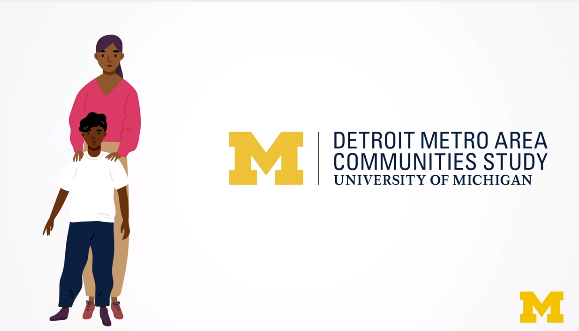Source: Poverty Solutions

Since 2016, U-M’s Detroit Metro Area Communities Study has been conducting a state-of-the art, panel survey of a representative sample of Detroit households.
Sixty-one percent of Detroiters say they are somewhat unlikely or very unlikely to get a government-approved COVID-19 vaccine when it becomes available, according to the latest survey from the University of Michigan’s Detroit Metro Area Communities Study.
The latest wave of the representative survey of Detroit residents was open Oct. 14-28. This is the fifth rapid-response survey DMACS has fielded during the pandemic to document the impact of the health and economic crisis on city residents.
Among those questioning if they will get vaccinated, Black residents are four times as likely as white residents to say they are very unlikely to get the COVID-19 vaccine, and Hispanic residents are twice as likely as white residents to say they are very unlikely to get the vaccine. Additionally, women are nearly twice as likely as men to say they are very unlikely to get the vaccine, though higher levels of income and education increase the likelihood a resident will seek to get the vaccine when it is available.
“Hesitancy about the vaccine may be explained in part by trust around information on the pandemic,” said Jeffrey Morenoff, one of the faculty research leads for DMACS, professor of public policy and sociology, and research professor at the Institute for Social Research.
Detroiters said whether the vaccine has been in use for a long time without serious side-effects and the degree of risk of COVID-19 infection might influence their decision to get a vaccine when it’s available, according to the survey.
“Those with greater levels of distrust in information from government, news, and doctors are less likely to say they will be vaccinated,” Morenoff said. “Successful efforts to promote a vaccine when it’s available will need to take into account these attitudes.”
DMACS shows roughly 69% of Detroiters currently view the pandemic as very serious for themselves personally and their community. Previous waves of the survey found nearly all Detroiters are wearing masks, with the latest survey showing 98% of residents wear masks some or all of the time while doing activities outside their homes.
Read more here.

